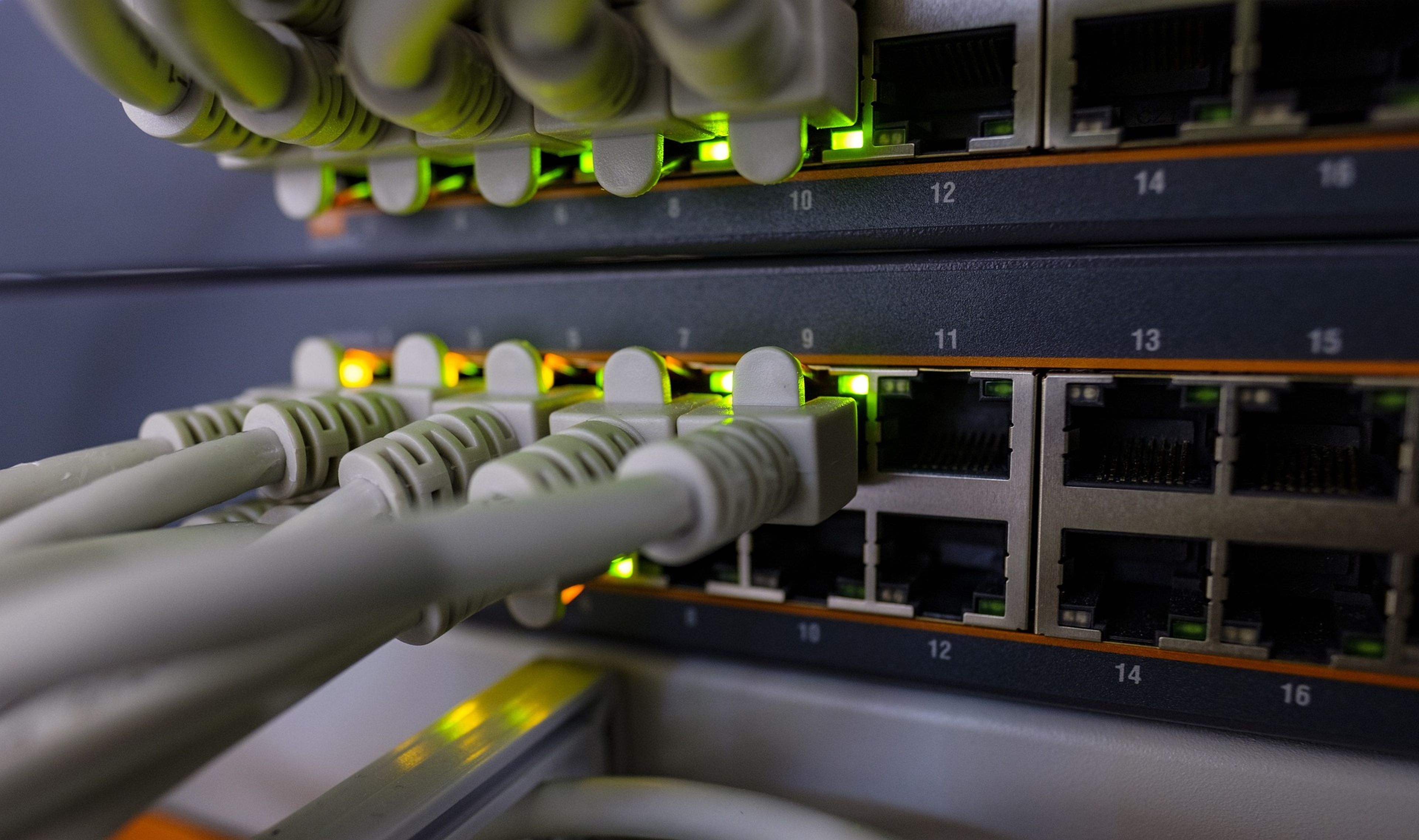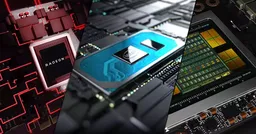[ad_1]
As we currently are, it seems that WiFi is always the best option to choose. However, it’s not always like that.
a connection Wifi is the one that most of us have at home and use a router to transmit wireless signals to which you connect with your devices. An Ethernet connection (or wired connection) uses Ethernet cables, also known as RJ45 cables, (Cat 5, Cat 5e…etc.) that they plug into your devices to connect to the Internet.
Ethernet connections are faster because you are essentially connected to the Internet. Your traffic doesn’t have to be transmitted via wireless signals to or from your device. This reduces transmission delays and gives you faster speeds.
Of course, everyone likes WiFi. It’s comfortable, neat and available almost everywhere. But it is not always the best option. Ethernet offers consistent speeds and low latency, while WiFi does not. We explain the best of both worlds so you can decide what’s best for you, below.
Ethernet vs. WiFi: What is the basic difference?
In general, wireless connection gives you mobility. You can move freely while listening to music or watching Netflix on your tablet or smartphone comfortable in bed. The downside is that range and interference wreak havoc on the connection. You will see sometimes quite large slowdowns or outright disconnections as you move away from the router or it crashes.
Instead, Ethernet offers reliability. The cables are ugly, long and keep you tethered to one place, but the speeds of ethernet they don’t fluctuate like WiFi: you can get the same speeds at 300 feet as you do at ground zero. The downside is that you lose the untethered mobility of WiFi.
In which situations you should choose Ethernet
You should choose Ethernet for its secure connection, its constant and high speeds and its low latency. It’s not an attractive solution, we understand, but Ethernet is better in certain situations, such as online gaming.
The key to Ethernet is consistency and range. Wired signals don’t fluctuate like WiFi connections do. Data flow is solid end-to-end, and the consoles also have the right ports to plug in Ethernet cables, making them perfect for connecting to Internet.
The faster speeds are mainly due to the signal being sent directly to the device instead of being output. And it is that, it has fewer variables that can affect the intensity of the signsuch as interference from other electronic devices, and allows full signal strength to reach the device.

Besides, Ethernet cables often (but not always) have a higher maximum bandwidth than WiFi routers, so it is possible to reach higher speeds (if your Internet plan supports them). The last part of the speed puzzle is latency. Latency is the delay between the time a signal leaves a location and reaches its destination.
A signal can travel faster over the cable than over the air, so Ethernet connections almost always have lower latency by default. On the other hand, if you’re only going to watch videos, listen to music, or browse the Internet, latency probably won’t matter much to you.
This makes them ideal for situations where reaction time matters, such as gaming. If you’ve ever tapped a command in a game and waited several seconds for your character to perform the action, you’ve experienced high latency.
Besides, Ethernet is inherently more secure than WiFi. This is because, with Ethernet, there is no grid to join: You would need physical access to the network to access the data on it, whereas WiFi travels through the air and is therefore easier to intercept. Finally, troubleshooting connectivity is easier: just reboot or change the cable.
In which situations it is better to use WiFi
Let’s go with the advantages or why you should choose WiFi. Well, it is basic, since this it excels in all areas where Ethernet falls short. There are no messy cables and although the theoretical range is limited, you can connect from anywhere in the house.
Virtually all modern devices can connect to WiFi, from smartphones to desktop computers, and you can have multiple devices connected and running at the same time. WiFi is ideal for situations where convenience and mobility are paramount:
- A home network shared by several people
- Working from home, where you may want to change your environment throughout the day
Of course, a WiFi connection also has weak points. The wireless nature of the network introduces latency and interference issues. This can make make the online experience more frustrating and you’ll never have to worry about your WiFi password when you’re on a wireless connection. wire.
Traditionally, wireless connections also tended to have slower speeds than wired connections. This difference has become less pronounced in recent years with the advent of new wireless technologies.but it’s still largely true, especially if you’re working with extremely fast internet speeds.
How much faster is Ethernet?
If we talk about WiFi connections versus Ethernet connections, Ethernet cables offer more consistent speeds. However, with the constant advancement in WiFi technology, the speed gap is narrowing.
An Ethernet connection can support speeds ranging from 100 Mbps (Cat 5) or 1 Gb/s up to 40,000 Mbps (Cat 8) or 40 Gb/s, depending on the cable you use and the speeds your plan offers. The new WiFi standards or even Future WiFi 6 may offer speeds of up to 9,608 Mbps or 9.6 Gb/s.
| Category | Speed | Frequency | Download speed |
|---|---|---|---|
| CAT 5 Ethernet | 100Mbps | 100MHz | 15.5MB/s |
| CAT 5E Ethernet | 1,000Mbps | 100MHz | 15.5MB/s |
| CAT 6 Ethernet | 1,000Mbps | 250MHz | 15.5MB/s |
| CAT 6 Ethernet | 10,000Mbps | 500MHz | 1,250 MB/s or 1.25 GB/s |
| CAT 6A Ethernet | 10,000Mbps | 600MHz | 1.25GB/s |
| CAT 7 Ethernet | 10,000Mbps | 1000MHz | 1.25GB/s |
| CAT 8 Ethernet | 40,000Mbps | 1000MHz | 5GB/s |
It is important to keep in mind that the speeds will not exceed what your plan offers, regardless of whether you use a WiFi or Ethernet connection. For example, if you signed up for 150 Mbps, that’s the maximum speed you’ll get, whether it’s over an Ethernet cable or a WiFi connection (although with WiFi we all know that’s probably not all of it).
The difference is that the Ethernet connection is not interrupted by outside interference and can consistently deliver the speeds available on your router. While today’s WiFi technology can handle most of your daily tasks, here are a few Examples of times when you might benefit from an Ethernet connection for a more reliable connection:
- Copy your equipment to a server or hard drive
- Download large files
- File transfer between two computers
- video streaming
- Online games
Other factors to consider
If it has not yet been completely clear to you, we want to leave you with some Last factors that you should take into account when choosing one or the other:
1. Cost: Ethernet can be expensive. The amount of cable you need to get to an area of the house that you can easily access via WiFi, albeit with a poor connection and probably the reason you’re using Ethernet in the first place, can be expensive.
2. Gaming: Ethernet takes the gaming trophy for its constant speed and low latency. This win applies to online gaming, whether it’s a match of Fortnite, League of Legends, or Call of Duty. Technically, latency is subject to Internet traffic that you can’t control, but you can reduce that latency on your own by using Ethernet.
If you have to use Wi-Fi to play, avoid the 2.4GHz band. It’s crowded and better to use for older devices and IoT gadgets. Also avoid lower 5GHz channels, if you can, because everyone under the sun has jumped out of the Connection 2.4 GHz and now crowds the lower 5 GHz spectrum. The best speeds and latency are in the upper 5 GHz channels and the new 6 GHz band.
3. Streaming: Ethernet provides consistent speeds over long distances. Devices like Apple TV, smart TVs, Blu-ray players, and some Roku players, among others, include Ethernet ports.
One thing to keep in mind is that no connection is without its problems, whether you use Ethernet or WiFi. You are at the mercy of your internet plan and your router, which can only handle a limited amount of traffic.
[ad_2]








Leave a Reply